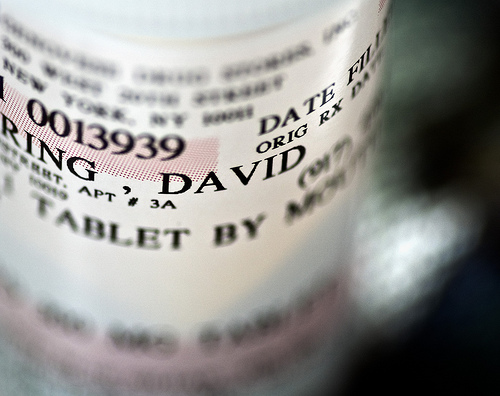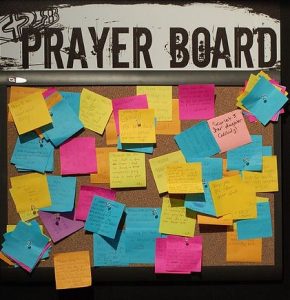Lectionary Reflection, 18th Sunday after Pentecost, Proper 21, Year B
September 26, 2021
Therefore confess your sins to one another, and pray for one another, so that you may be healed. The prayer of the righteous is powerful and effective. -James 5:16
Let’s talk about health for a moment. Did you know that according to the Organisation for Economic Co-Operation and Development, eleven developed countries, including the United States, report an obesity rate of 25 percent or greater for 2016 or later? This means at least one in four folks have a Body Mass Index (BMI) of more than 30? Guess which country ranks number one for obesity, coming in at a whopping 40 percent of the population? If you guessed the United States, you are correct. Some reliable sources predict it won’t be long before 50 percent of the adult population in the U.S. will be categorized as overweight or obese.
Along with weight problems come many other concurrent and chronic health issues including hypertension, high cholesterol, heart disease, and joint problems. We may be a wealthy and developed nation, but we are not healthy as a whole. In fact, chronic conditions, including cardiovascular disease, diabetes, chronic respiratory disease, and some cancers cause more than 50 percent of world deaths. Sadly, according to medical experts, these four diseases are the result of three major risk factors: smoking, poor diet, and physical inactivity. The issue of health, well-being, and the growing pandemic of chronic health conditions is a tough one, fraught with conflict and blame.
Possible solutions include a combination of interventions and societal structural changes ranging from banning smoking in public places to encouraging walking and taking stairs to reducing the amount of sugar in drinks or providing a polypill (a combination of statins, antihypertensives, and aspirin) to marginalized at-risk populations . Some issues require a personal commitment, while larger societal changes must engage public policymakers and government in restructuring and intervening on behalf of the general population.
What about spiritual health? What parallels might we draw between flagging physical health and well-being and flabby spirituality? Can we make structural changes to our faith communities that encourage spiritual wellness and invite people into relationship where healthy interventions and life changes may take root? In some ways it seems the traditional mainline structure has come to resemble the processed food industry: give consumers an easy, quick, tasty, and cost-effective product that requires little investment and is easily disposable. Perhaps we need something akin to the slow food movement in our spiritual lives. Instead of an easily digestible dose of Jesus-lite, perhaps we need to return to an organic mix of spiritual practices in community.
We know the risk factors for poor spiritual health include chronic lack of participation in a faith community, failure to practice spiritual disciplines of prayer, study, and worship, and over-reliance on the pleasures of worldly consumption and excessive selfishness and greed. While there is no over-the-counter medication for spiritual heart failure and faltering faith, there is an intervention that has proven effective over time and is an excellent starting place for anyone who is suffering from poor spiritual health. James discusses it this week in the epistle lesson, when he says, “Therefore confess your sins to one another, and pray for one another, so that you may be healed. The prayer of the righteous is powerful and effective” (James 5:16). There it is; be in community, trust and be transparent with one another (i.e. develop solid spiritual relationships), and pray for one another. If that’s not the equivalent of a spiritual polypill, I don’t know what is. In fact, there are plenty of studies that show a positive correlation between prayer and well-being for those who pray, including 250 studies that show a positive correlation between practicing one’s religion and “significant outcomes in physical health.”
Yes, our faith communities and religious practices provide a potent prescription for renewed spiritual health and vitality, along with real-life health benefits. The “great physician” offers hope and healing of body, mind, and spirit, but we must be active participants in the process. Whether it is the healing touch of the laying on of hands or a simple hug from a sister or brother in Christ or the potent power of prayer or the relief of corporate confession, active participation in the Body of Christ is preventative medicine at its best. What are you waiting for? There’s no co-pay, third-party billing, or lifetime limits on God’s grace and love.
Time with Children
Have you ever felt really sick? Maybe you have a fever or an upset stomach, a runny nose and a horrible cough. What do you do?
Chances are your parents will give you some medicine and some chicken soup and if that doesn’t work they will take you to the doctor. A physician is specially trained to figure out what ails you and prescribe a way to treat you that will make you feel better.
Sometimes, if you are really, really sick the doctor may send you to the hospital where you can get very special care. Doctors, nurses, and allied health practitioners devote their lives to keeping people physically healthy and hospitals are one of the places they where they work.
What do you do when your heart and spirit are feeling sick? Where do you go when your faith seems shaky? You could go to the doctor or hospital but they probably won’t have the right tools and equipment to help you.
You need a special place and a special prescription; you need to be right here in this place! You need God and Jesus and the Holy Spirit to help your heart and spirit feel renewed, and you need the body of Christ–all of us–to help you strengthen your faith. In fact, we need each other.
So what’s the prescription the great physician (that’s God) gives to us? Let’s see what James had to say in this week’s epistle reading:
“Are any among you suffering? They should pray. Are any cheerful? They should sing songs of praise. Are any among you sick? They should call for the elders of the church and have them pray over them, anointing them with oil in the name of the Lord. The prayer of faith will save the sick, and the Lord will raise them up; and anyone who has committed sins will be forgiven. Therefore confess your sins to one another, and pray for one another, so that you may be healed. The prayer of the righteous is powerful and effective” (James 5:13-16).
We pray. We worship. We learn about how to be God’s people by reading the Bible. We find ways to serve–to do spiritual exercises that both help the world and strengthen us. We develop relationships within our faith community that are healing and helpful. And we learn to be generous–to share the many good things God has given us with others. This is our prescription for healthy discipleship and a really good life.
I want you to take one of these bottles with you today and follow the directions on the label. Inside you’ll find some scripture passages to read. Think of them as vitamins for your faith.
God loves you and wants you to be a healthy, faithful disciple who lives well and loves all. Let us pray:
Dear God, our great physician, thank you for caring enough about us to give us a prescription for real life as your children and disciples. Help us to follow your instructions, love one another, and serve you and the world through this community of faith. Bless and keep us. Guide us and lead us into good health and life everlasting. In Jesus’ name, Amen.
Note: For this children’s lesson, I purchased blank amber pill bottles and made labels for them. I filled them with small pieces of card stock on which I typed 14 scripture passages for the families to look up and read together. Click Spiritual Rx for an example of the labels and Scripture Pills for the scripture references. This can easily be modified to suit your context.
Photos by CarbonNYC, vlauria, and nimble photography used under Creative Commons License. Thanks!
*This reflection was originally posted on the same Lectionary week in 2012. The statistics for global obesity have been updated.






Leave a Reply